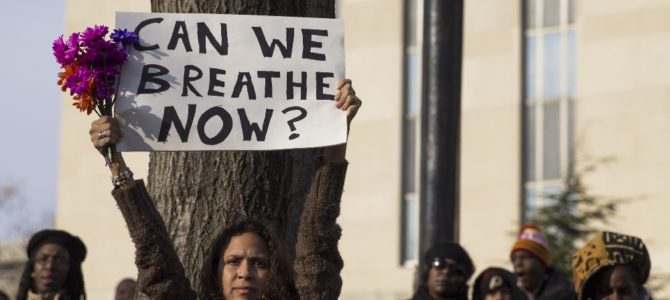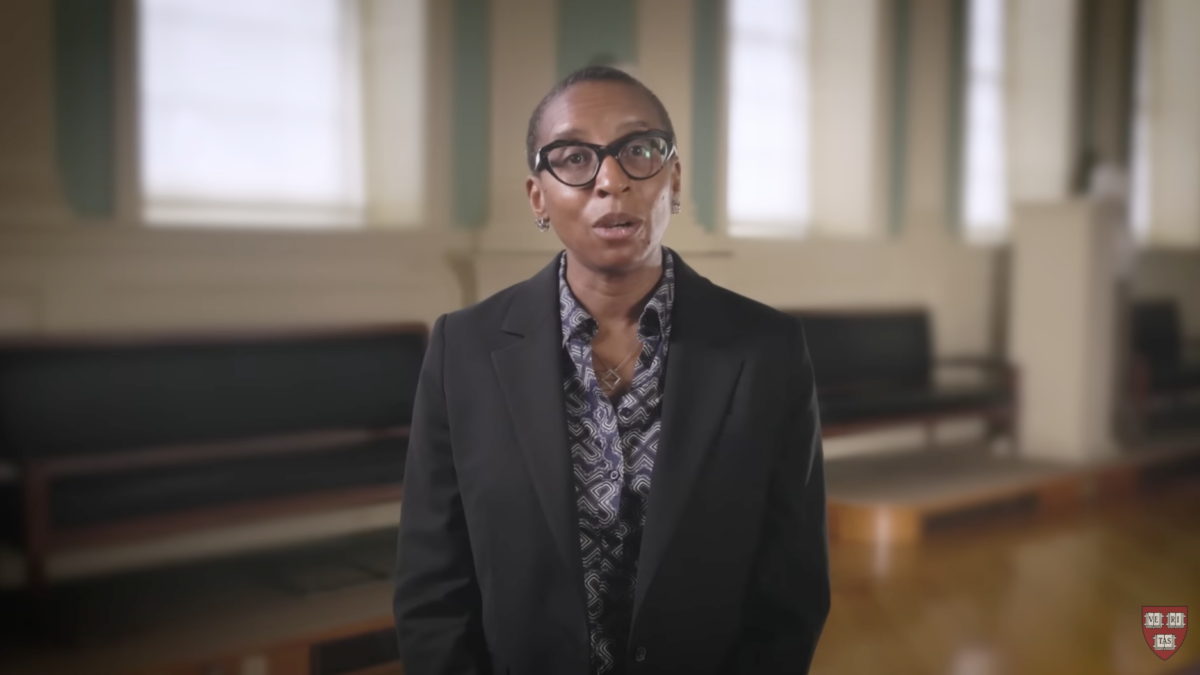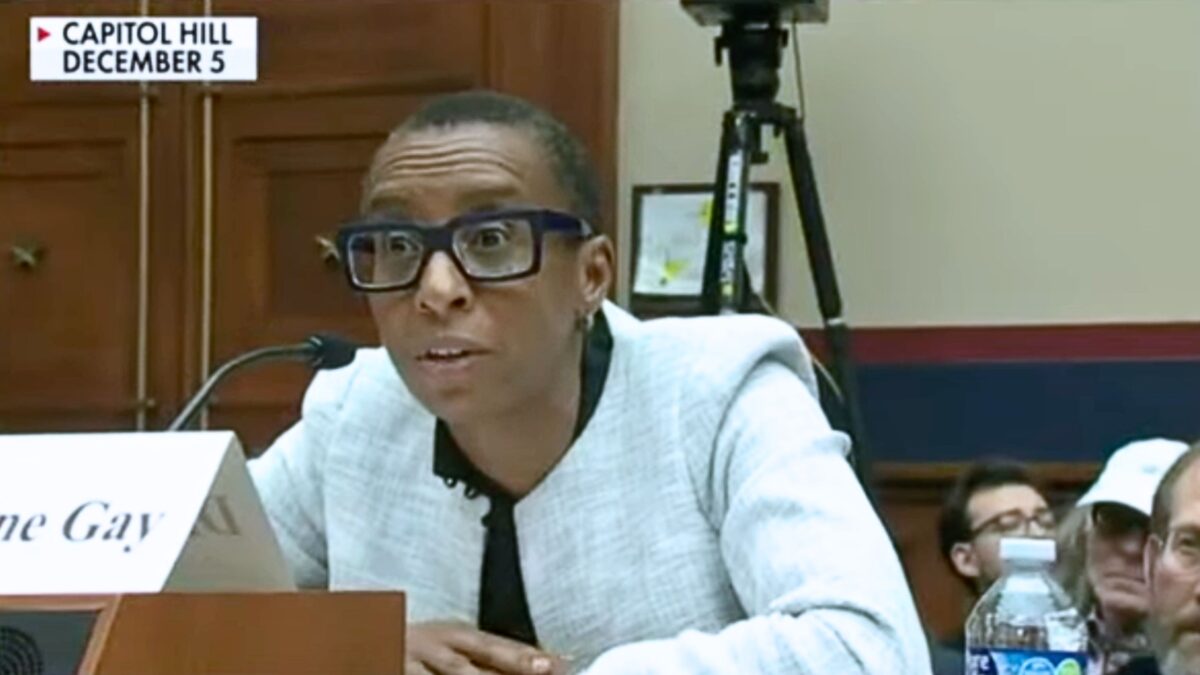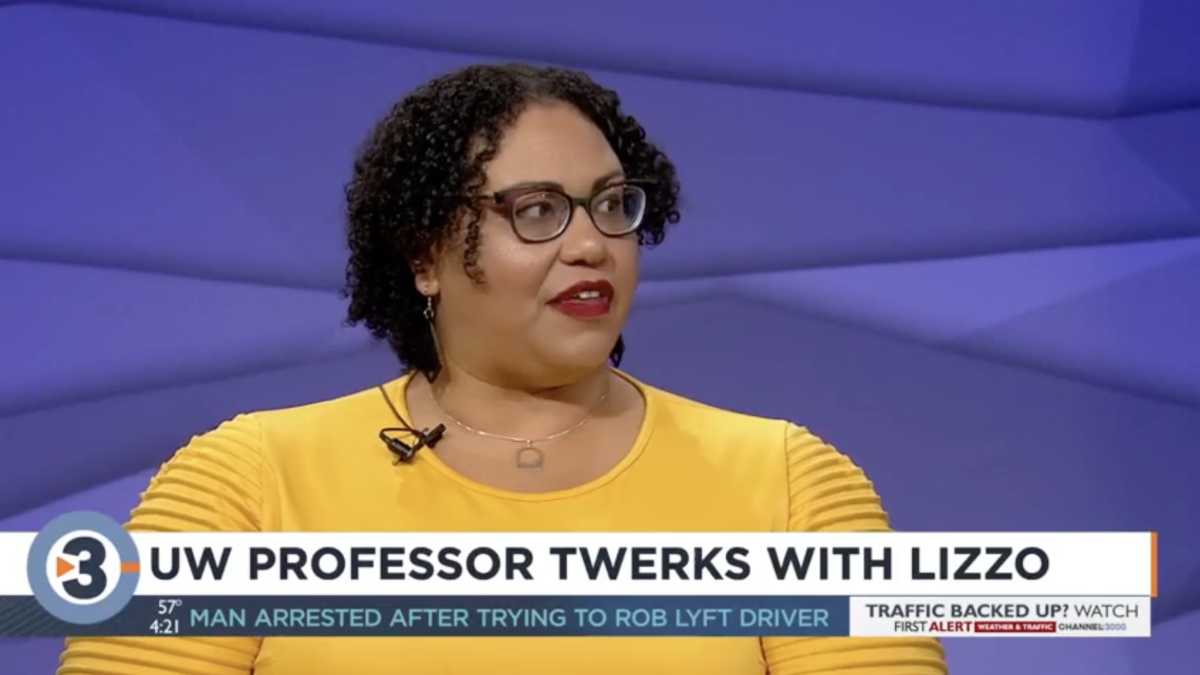
Several recent demonstrations at various colleges across the country illustrate nicely the incoherent temper-tantrum style of politics that currently dominates campus life.
At the University of Oregon, the school’s president was delivering his yearly State of the University address when student protesters stormed the stage babbling about “neo-Nazis” and “fascism.” They chanted things like “shame.” One student announced: “Expect resistance to anyone who opposes us.” The protestors needn’t have worried about any opposition: the school cancelled the president’s speech and beat a hasty retreat.
At Virginia Tech late last month, protesters showed up at that president’s State of the University address as well, accusing him of employing a “white supremacist,” chanting “Nazis get off our campus” and “No Nazis! No KKK! No Fascist USA!” When the president attempted to keep speaking, protesters “shouted over him and threw tiny white pieces of paper containing information on the [alleged white supremacist] employee.”
At the University of California at Berkeley, a group of students disrupted a professor’s class and read a manifesto of grievances, demanding that the professor offer a take-home exam instead of the in-class one. “Our well-beings are being put on the line because of our emotional, mental and physical stress,” one student announced. The protestors harangued the class, dismissing one student as a “white boy with privilege” and interrupting the professor as he tried to reason with them. When the professor asked that the students let him finish, they fired back: “We’ve let you finish forever, from day one.”
These Are Our ‘Top’ Universities, Folks
At Columbia, students interrupted the class of a professor, claiming Columbia is “endangered” by the instructor, who is also a Title IX sexual harassment administrator. The students accused the professor of “making Columbia inaccessible to survivors of violence,” claiming she was responsible for “Columbia’s culture of sexual harassment.” A video of the event shows the professor attempting to engage the students, informing them she would speak to them after the class was over; the students ignored her.
At the College of William and Mary, Black Lives Matter protestors interrupted a talk being given by an American Civil Liberties Union representative. The talk, ironically enough, was about free speech. The students stormed the stage and drowned out the speaker. School officials quickly handed the protesters a microphone; the group read a prepared statement and subsequently prevented anyone from speaking to the ACLU representative. The school promptly cancelled the event.
At Southern Texas University, a state representative was giving a speech to the campus chapter of the Federalist Society when Black Lives Matter protesters stormed the event, protested it with chants and accusations of racism, and accusing the representative of being a member of the Ku Klux Klan.
At Michigan State University, a speech by political scientist Charles Murray was hijacked by protesters who accused him of white supremacy and sexism. One agitator mounted the stage to hold an informal debate with Murray. Another protester told Murray: “You are killing us!” A student group attempted to shut the event down, though they were ultimately unsuccessful.
Two Common Threads Throughout
All of these protests and disruptions have two things in common. The first is a student body that is increasingly fanatical, irrational, unhinged, and dynamic in the worst way possible. Just a few short years ago, even the most militant and zealous student-activists needed some sort of catalyst to muster the energy to protest. Today’s protester students—bored, underworked, overly stimulated by progressive media, and convinced they are living in a social carbon-copy of Montgomery, Alabama, circa 1962—cannot be bothered with all that waiting. If they can’t find something real to protest, they’ll make it up.
The second common feature to these protests is no less pervasive but far more frightening: college administrations who, through their own obsequious cowardice, have become utterly powerless against the activists running amok on their campuses.
This is not a problem of mere optics. On the more active and tumultuous campuses, presidents, chancellors, and professors are seemingly determined to fold before student protesters. At Evergreen State College earlier this year, the president of that school kowtowed to the demands of perhaps the most viciously ignorant and anti-rational student mob of the last few years. At the University of California at Santa Cruz, the administration acquiesced to every demand made by the university’s African/Black Student Alliance (the A/BSA subsequently made more demands and implied they’d hold more aggressive protests if the additional demands weren’t met).
In the spring, American University granted student demands to bar white students from a campus cafe. Meanwhile, the list of speakers whom colleges have cancelled because students were afraid of feeling “unsafe” is too numerous to count.
Cowardice Encourages Violence and Madness
It cannot be an easy job, working at a college in an age of shrieking college hysterics. One must always be prepared for a new histrionic outburst from one’s student body: in particular, presidents and chancellors are doubtlessly worried that their offices will be subject to “sit-ins” and other throwback protests, all because their university doesn’t have enough deputy vice administrators of Super-Duper LGBTQIXIT Diversity Outreach.
But college officials are not supposed to be cowards. They are supposed to be above the kind of babbling insanity that has gripped campuses nationwide. College administrators should be responsive to their students’ needs and desires, but that kind of responsiveness does not naturally extend to the fawning subservience we see on so many campuses today.
There are a great many college students who have a whole lot of growing up to do. There are also a great many college administrators who have to stop ingratiating themselves to insane, sometimes violent student mobs. The former are unlikely to change if the latter continue treating them like inviolable gods on campus.
Here is a gentle tip for the nominal adults nominally in charge of American campuses: if your students disrupt a scheduled event, or storm the stage of a school function, or take a classroom hostage (particularly on an exam day!), do not give in to them. Instead, have security escort them out immediately. If they resist, arrest them. If they persist, expel them.
Putting one’s foot down will not be easy or pleasant. But it is necessary—unless you wish to surrender your campuses and careers to mindless, fanatical zealots.









